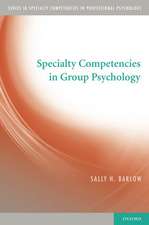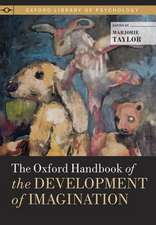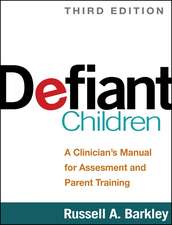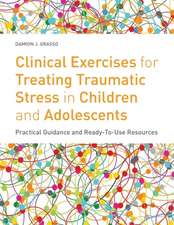Evolution, Early Experience and Human Development: From Research to Practice and Policy
Editat de Darcia Narvaez, Jaak Panksepp, Allan N. Schore, Tracy R. Gleasonen Limba Engleză Hardback – 29 noi 2012
Preț: 648.71 lei
Preț vechi: 754.31 lei
-14% Nou
Puncte Express: 973
Preț estimativ în valută:
124.12€ • 129.61$ • 102.50£
124.12€ • 129.61$ • 102.50£
Carte în stoc
Livrare din stoc 06 martie
Preluare comenzi: 021 569.72.76
Specificații
ISBN-13: 9780199755059
ISBN-10: 0199755051
Pagini: 506
Dimensiuni: 160 x 239 x 41 mm
Greutate: 0.88 kg
Editura: Oxford University Press
Colecția OUP USA
Locul publicării:New York, United States
ISBN-10: 0199755051
Pagini: 506
Dimensiuni: 160 x 239 x 41 mm
Greutate: 0.88 kg
Editura: Oxford University Press
Colecția OUP USA
Locul publicării:New York, United States
Recenzii
This ambitious book asks such profound questions as: Where do we come from? Why and how are we who we are? In light of evolutionary theory, the authors concentrate specifically on interpersonal experiences early in life and their influence on later health... The text provides a window into the pioneering work in the study of human evolution.
Notă biografică
Darcia Narvaez is Associate Professor of Psychology at the University of Notre Dame. Her research focuses on moral development through the lifespan with a particular emphasis on early life effects on the neurobiology underpinning moral functioning (triune ethics theory). Dr. Narvaez has co-authored or co-edited seven books and is editor of the Journal of Moral Education.Jaak Panksepp is the Baily Endowed Chair of Animal Well-Being Science at the College of Veterinary Medicine, Washington State University, in the Department of Comparative Anatomy, Pharmacology, and Physiology. His work has been devoted to the analysis of neuroanatomical and neurochemical mechanisms of emotional behavior, with a focus on understanding how basic affective processes are evolutionarily organized in the brain. He is the author of Affective Neuroscience (2004) and Archaeology of the Mind (2012). Allan N. Schore is on the clinical faculty of the Department of Psychiatry and Biobehavioral Sciences, UCLA David Geffen School of Medicine. His interdisciplinary studies on Regulation Theory, grounded in developmental neuroscience and developmental psychoanalysis, focus on the origin, psychopathogenesis, and psychotherapeutic treatment of the early forming subjective implicit self. He is the author of Affect Regulation and the Repair of the Self (2003) and The Science of the Art of Psychotherapy (2012).Tracy R. Gleason is the Whitehead Associate Professor of Critical Thought in the Psychology Department at Wellesley College, where her research focuses on the development of children's understanding of their relationships with others. Dr. Gleason is also Psychological Director of the Wellesley College Child Study Center. Her work has appeared in journals such as Developmental Psychology and the Journal of Educational Psychology.














